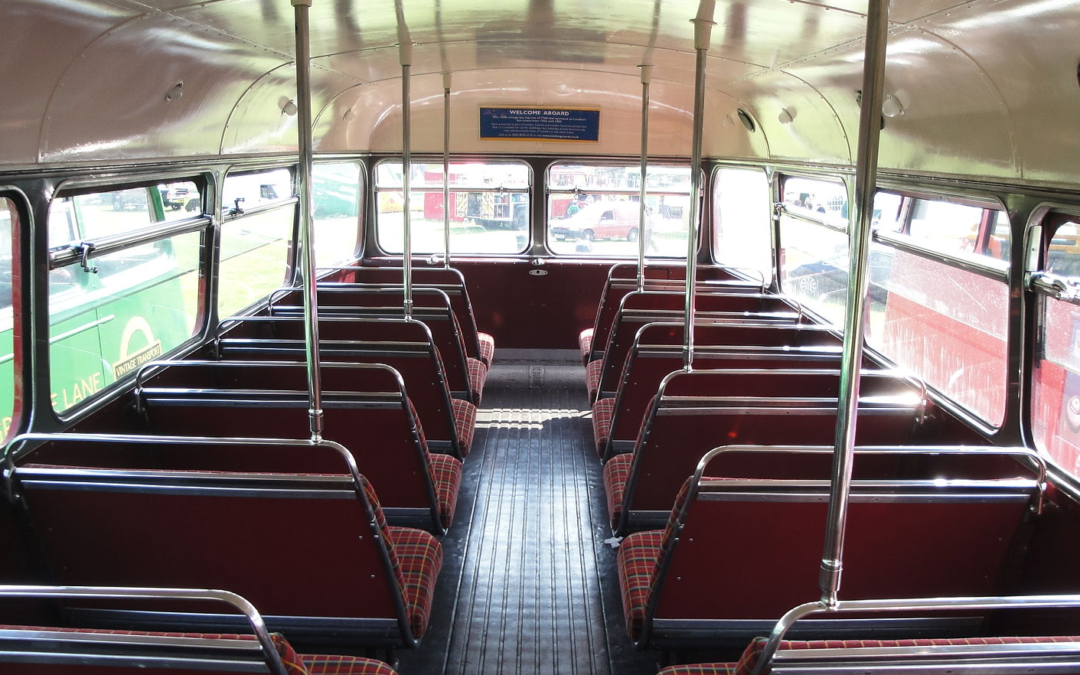By Philip Carter
The Bibliography of British and Irish History (BBIH) now gives you easy access to more than 1,200 Masters and PhD theses on the history of London. Using the Bibliography’s Advanced Search, you can explore metropolitan dissertations by title, topic, period, borough or landmark.
The latest BBIH update adds the ability to search the Bibliography’s 612,000 records in a new way: publication type. This means you can choose to look for only the monographs written on British and Irish history, or just the journal articles, or nothing but book chapters and edited collections.
Another publication type is thesis.
From August 2019, BBIH now provides records of 1,260 Masters and PhD dissertations on the history of London, written and completed between the 1950s and 2010s.
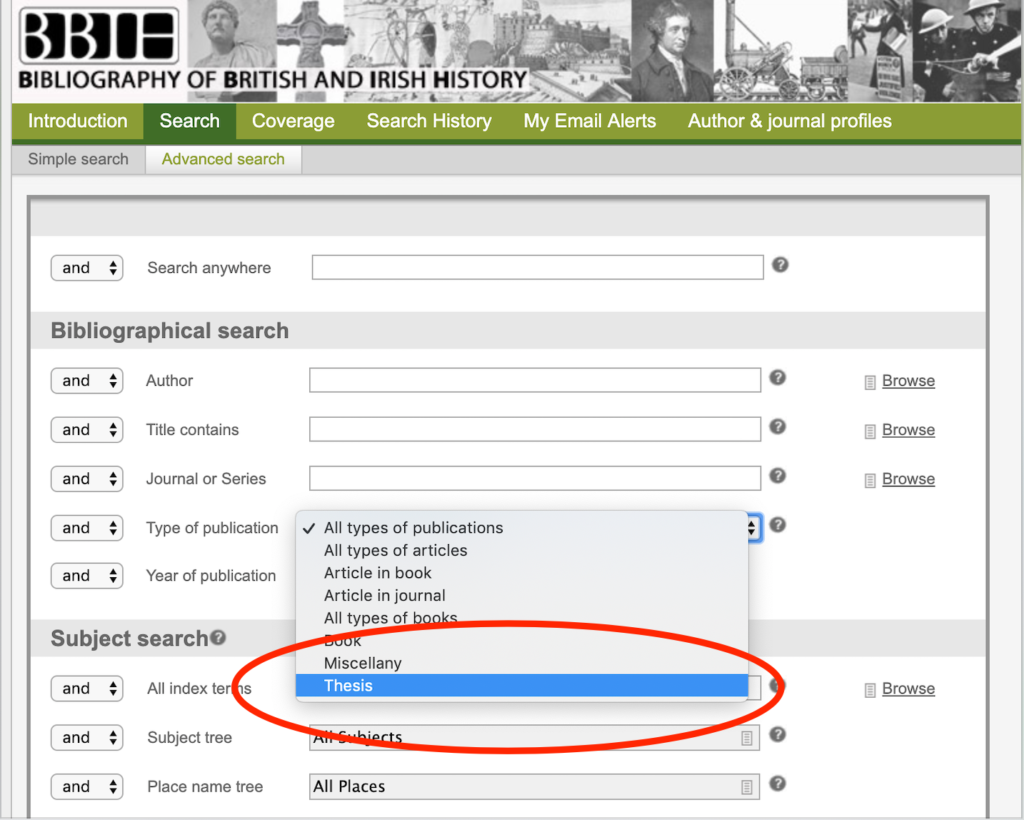
Searching BBIH by thesis allows you to uncover less well-known research (those dissertations that weren’t published, for instance), to trace the starting points of now noted scholars, and examine recent trends in the historiography of London.
PhD searching is also an important step in the Bibliography’s ongoing development. In future BBIH updates we’ll add details of all British and Irish History PhDs from UK universities, completed between 1901 and 2017. They’ll be fully searchable (as for current BBIH records), by author, title, historical subject, place, period and date of publication. But we’re beginning this project with easier access to the London theses. What do we find?
The Right Profile
From the 1,260 theses on offer it’s easy to spot the early research of historians who’ve gone on to make their names in London history.
Here are just a few: from Gareth Stedman Jones (‘Some social consequences of the casual labour problem in London, 1860-90, with particular reference to the East End’, Oxford 1970) and Nicholas Rogers, ‘London politics from Walpole to Pitt: patriotism and independence in an era of commercial imperialism, 1738-63, Toronto 1975) to Vanessa Harding (‘The port of London in the 14th century’, St Andrews 1983) and Laura Gowing (‘Women sex and honour: the London church courts, 1570-1640’, London 1993).
The list of theses also throws up many intriguing topics and titles, including ‘Busmen’s punch: rank and file organisation and official industrial action among London busmen, 1913-37’ (James Barrett, Warwick, 1974), and ‘City of beasts: the impact of quadrupeds in Hanoverian London’ (York, 2010); plus the occasional surprise, such as I. MacInnes’ 1989 Edinburgh MLitt: ‘The Highland bagpipe: the impact of the Highland Societies of London and Scotland, 1781-1844’.
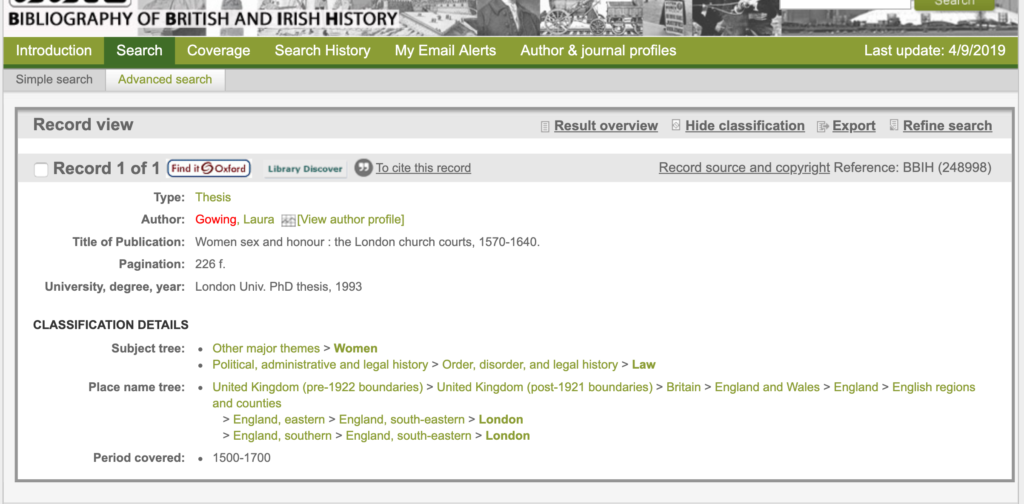
With London music a running theme in this post, it’s a good way of showing how these PhDs can also be searched by topic. A search for dissertations relating to ‘music and song’, for example, finds 54 theses with a strong showing for eighteenth-century opera, music hall and street balladry.
The piano (manufactured, composed for and played) is also prominent in this list. See, among others, Howard Lee’s ‘The piano trio in London from 1791 to 1800’, awarded by Louisiana State in 1980; Therese Ellworth’s ‘The piano concerto in London concert life between 1801 and 1850’, Cincinnati, 1991; and ‘The reception of women pianists in London, 1950-60’ (Lemy Sungyoun Lim, City University, 2010).
Live by the river
The Bibliography also lets you search by place within the capital. You may already know that The Clash recorded their 1979 album, London Calling, at the Vanilla Studios in Pimlico. A BBIH search of the district also reveals that H.J. Swales-Hazeleton was likely there at the same time, researching what became his 1981 London PhD, ‘Urban aristocrats: the Grosvenors and the development of Belgravia and Pimlico in the 19th century’.
BBIH place filters allow you to hone results via a range of categories. For London, these include the 32 boroughs; well-known cultural districts like the West End or Fitzrovia; prominent institutions such as hospitals (revealing PhDs on Guy’s, St George’s; the Maudsley, Chelsea and Foundling hospitals); and major topographical features.
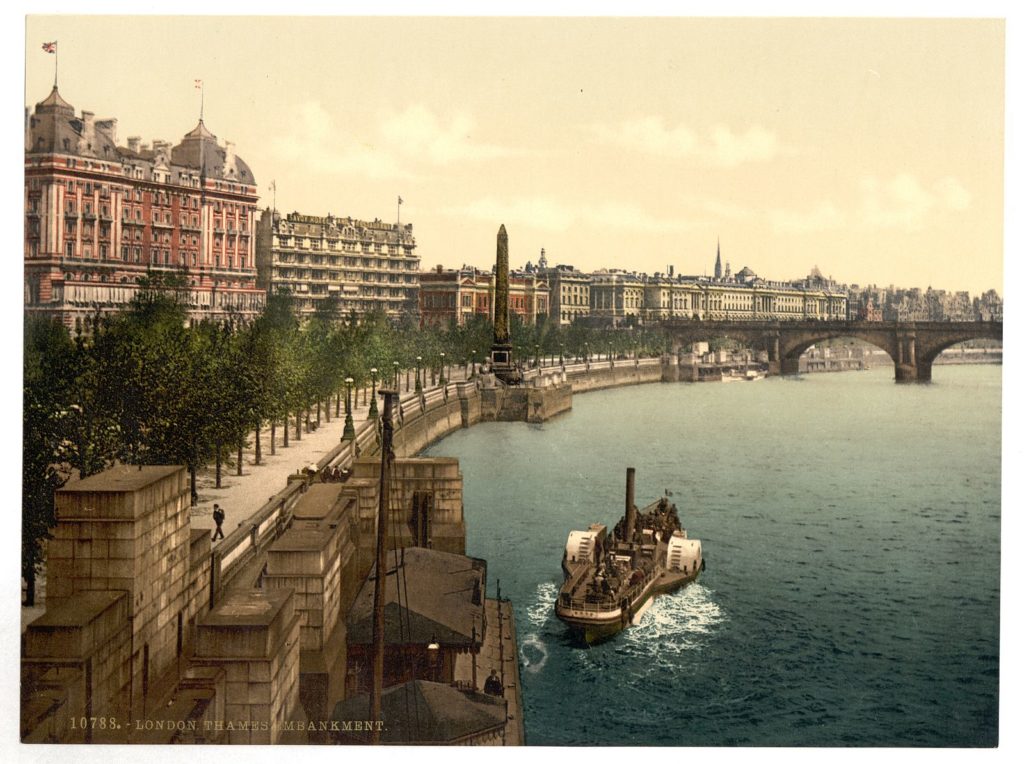
If, like Joe Strummer, you ‘live by the river’ there’s a wealth of choice among the 1,260 theses. Options include ‘Technical vocabulary to do with life on the River Thames in London, 1200-1500’ (Laura Wright, Oxford 1989), Keith Fairclough’s ‘The river Lea, 1571-1757 : a river navigation prior to canalisation’ (London, 1987) and the 2014 Sussex doctorate, ‘A forest of masts : the image of the River Thames in the long eighteenth century’, by Geoffrey Snell.
Brand New Cadillac or Train in Vain?
How people got around the capital has long fascinated historians. Forty-five of the theses listed in BBIH have transportation as their theme.
Nor are Londoners’ concerns over travel and infrastructure particularly new, as shown in Claire Martin’s ‘Transport for London 1250-1550’ (London 2008) and P.M. Carson’s 1954 London MA, ‘The provision and administration of bridges over the lower Thames, 1701-1801, with special reference to Westminster and Blackfriars.’
At the same time, the numerous studies of the Thames river trade, and of port and dock culture, remind us of now lost dimensions of London life.
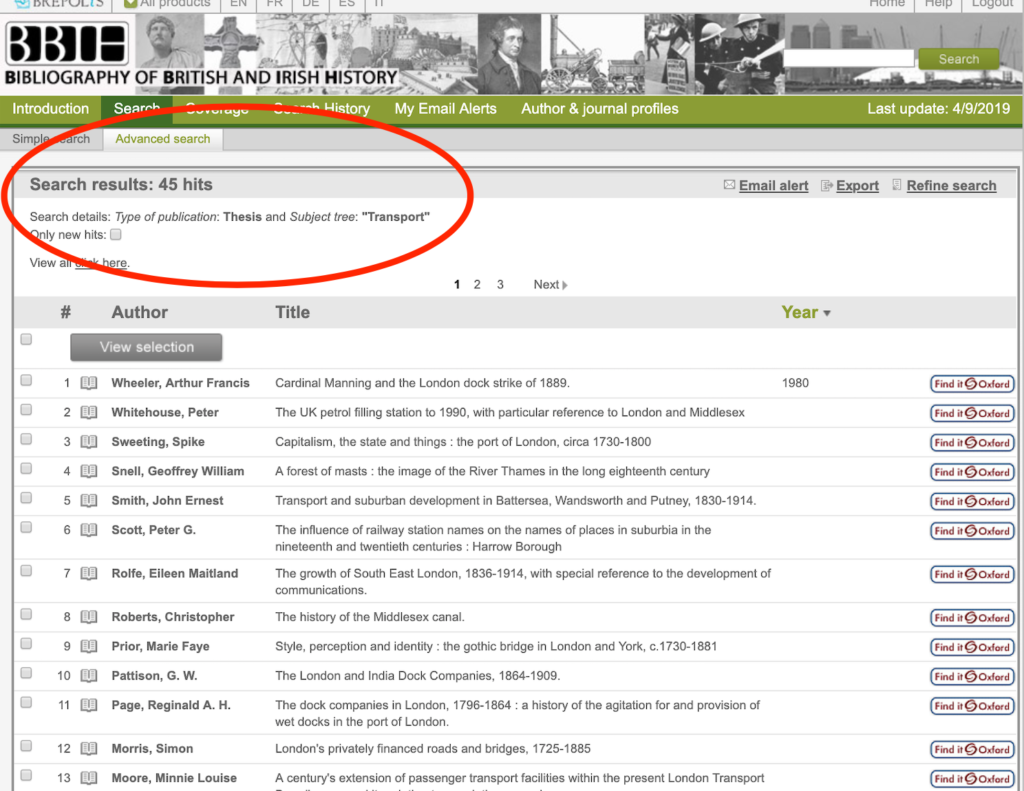
Other dissertations chart new technologies that transformed how Londoners travelled and worked. These include studies of eighteenth-century canal building, the rise of public transport, the Underground and taxi cab and city air travel. Meanwhile, the historical promise of a motorised metropolis informs Peter Merriman’s 2001 Nottingham PhD, ‘M1, a cultural geography of an English motorway, 1946-1965’ and Peter Whitehouse’s ‘The UK petrol filling station to 1990, with particular reference to London and Middlesex’ (Birkbeck, 2008).

Finally, to those who enjoy the occasional post-punk pun, ours won’t be the last and it’s certainly not the first, as Sukhdev Sandhu’s 1998 Oxford PhD — ‘Calling London: descriptions of the English metropolis by African, Caribbean and South Asian writers, 1772-1998’ — makes clear.
About BBIH: for research and teaching
The Bibliography (BBIH) is the most comprehensive and accurate guide available to what’s been written about British and Irish history. It’s an essential resource for research and teaching, providing full details 612,000 publications relating to the British Isles, the British empire and the British world.
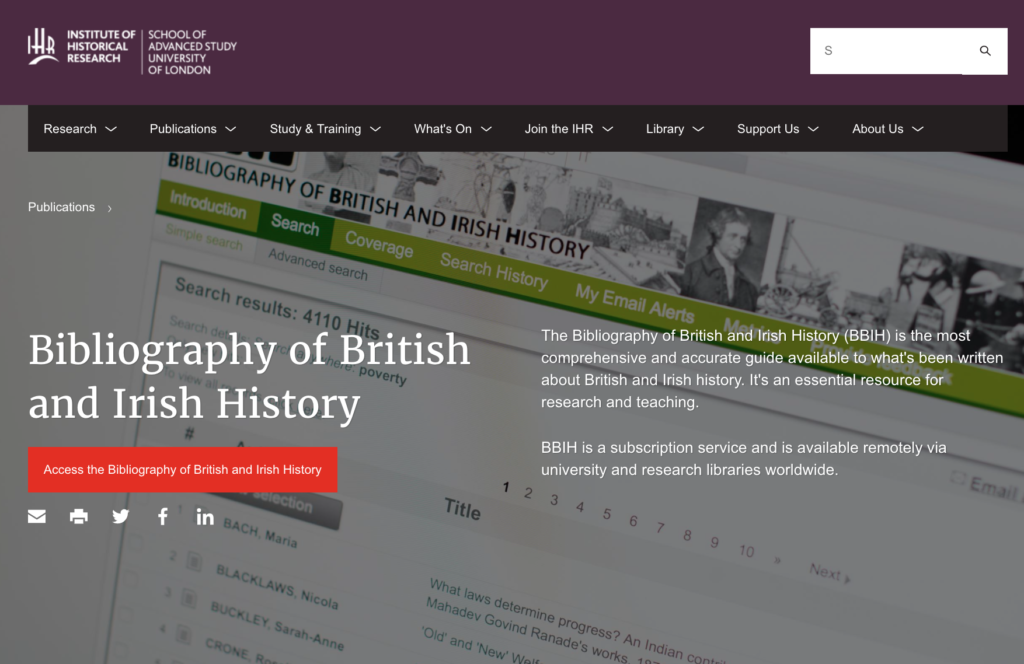
BBIH is a subscription service and is available remotely via university and research libraries worldwide in the UK and worldwide. It’s a research and publishing project of the IHR, the Royal Historical Society and the academic publishers, Brepols. Further information about BBIH is available via the IHR website.

Philip Carter is Head of Digital and Publishing at the IHR, and Technical / Publishing Editor of the Bibliography of British and Irish History.

